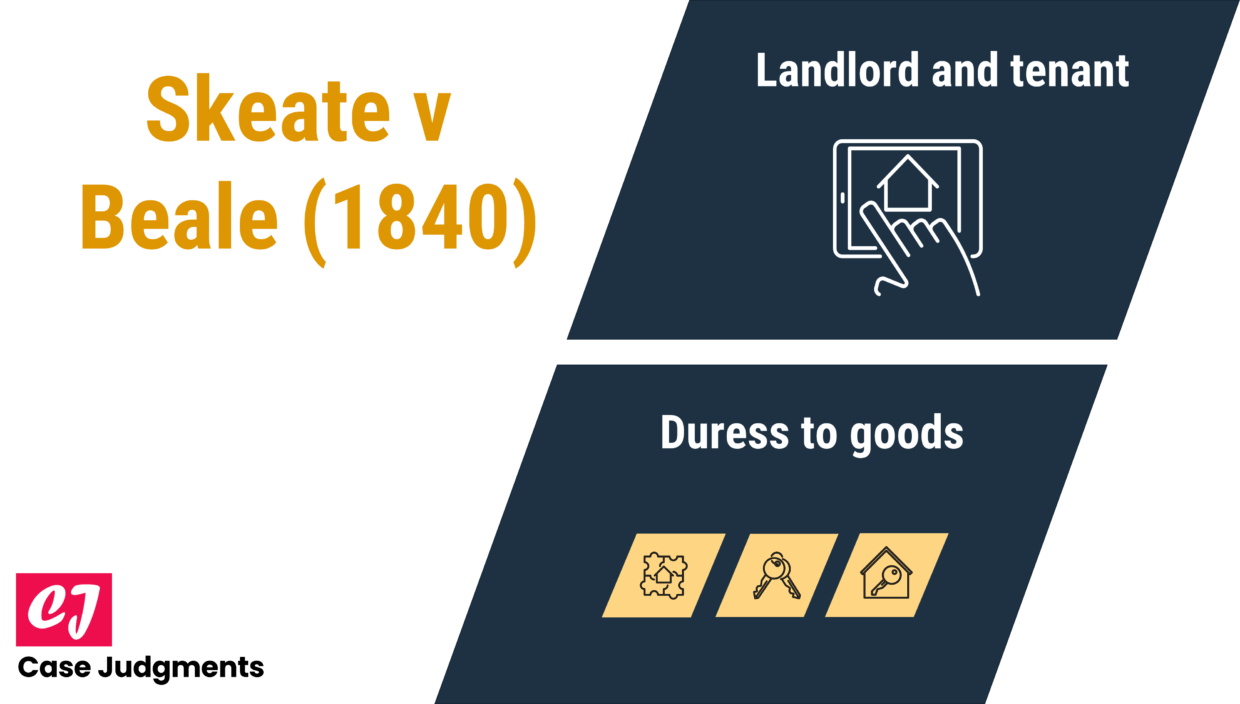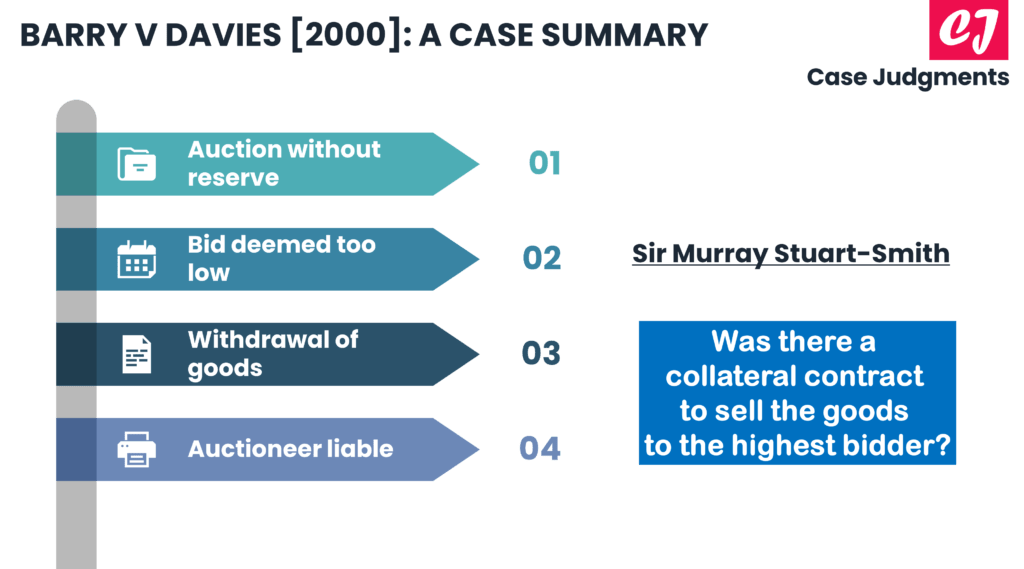
Skeate v Beale (1840): A Case Outline
Case name & citation: Skeate v Beale (1840) 11 Ad and El 983
Decided on: 01 January 1841
Jurisdiction: England & Wales
Area of law: Duress to goods
What is the case about?
This case considered the issue of duress to goods and whether or not a contract that was entered into for the payment of outstanding rent was void on the basis that it was only entered into because the landlord had threatened to sell some of the tenant’s goods.
Facts of the case (Skeate v Beale)
A tenant owed money to the landlord of the property. He took possession of the tenant’s belongings and threatened to sell them right away if the tenant did not enter into an agreement with him for the prompt settlement of the amounts owed. The tenant gave his assent to the terms of the payback. After that, he breached the agreement by failing to pay the overdue rent, and the landlord filed a lawsuit to collect the money owed.
The tenant then attempted to have the agreement voided on the grounds that it had been obtained under duress. The tenant asserted in their defense that the distress was unjustified because they were only liable for a small amount. It was because the landlord had threatened to sell the goods right away if the agreement wasn’t made that he had agreed to the terms of the contract.
Issue raised
Could the agreement of repayment be set aside for duress?
Judgement of the Court in Skeate v Beale
The Court came to the conclusion that the threat did not amount to duress because it was directed toward a property.
The application of duress to goods alone will not suffice to nullify a contract.
Hence, the promise given in return for the recovery of goods that had been unlawfully detained was held to be valid.
Criticism
This principle was criticized in Maskell v Horner (1915).
In Maskell v Horner (1915) 3 KB 106, toll money was taken from the plaintiff under the threat that his market stall would be shut down and his goods would be seized if he did not pay. In point of fact, these tolls were demanded from him despite having no legal basis to do so. The plaintiff was granted permission by the Court of Appeal to recoup the entirety of the toll money that had been paid.
It was decided that there was a wider restitution rule that allowed for the recovery of money paid to prevent goods from being seized or to obtain their release. This rule allowed for the money to be recovered.
The Skeate v. Beale line of cases says that an agreement to pay money under duress of goods (when one party threatens to damage or destroy property unless the other party agrees to a certain course of action) is enforceable, whereas the decision in Maskell v. Horner says that amounts paid under such agreements can be recovered in an action for money had and received under the law of restitution.
This results in a distinctive outcome, as it indicates that even while the agreement can be enforced, the money that was paid in accordance with it can still be recovered.
Duress of goods
Traditionally, the term “duress” solely referred to “duress to the person”, which meant that there had to be actual violence or the threat of actual harm against the person or party to the contract.
Since that time, the use of the term “duress” has broadened, and it is now generally accepted that the term may have an economic context and refer to situations including threats to harm property or goods as well as demands or threats over monetary matters.
List of references:
- https://www.studocu.com/en-gb/document/university-of-gloucestershire/contract-law/contract-duress-cases/3919513
- https://www.lawteacher.net/free-law-essays/contract-law/duress-makes-a-contract-voidable-contract-law-essay.php
- https://www.lawteacher.net/cases/duress-cases.php
- http://www.e-lawresources.co.uk/Skeate-v-Beale.php
You might also like:
More from contract law:

